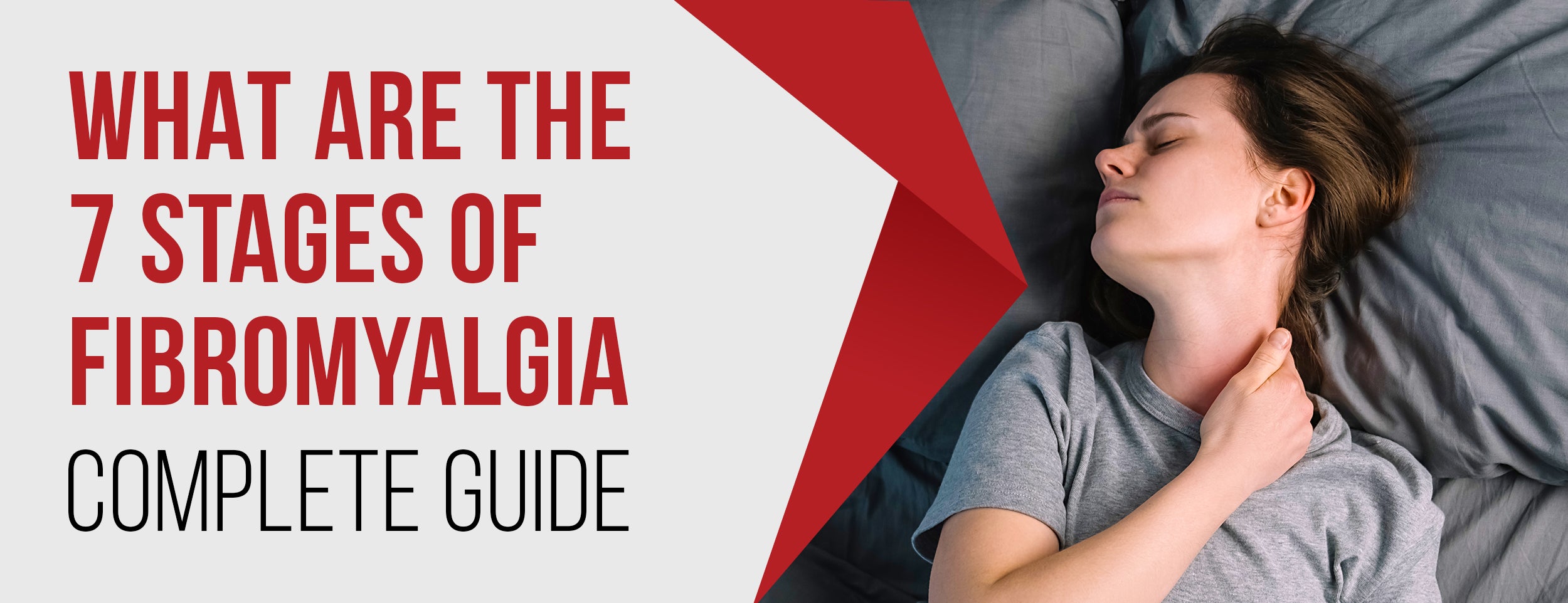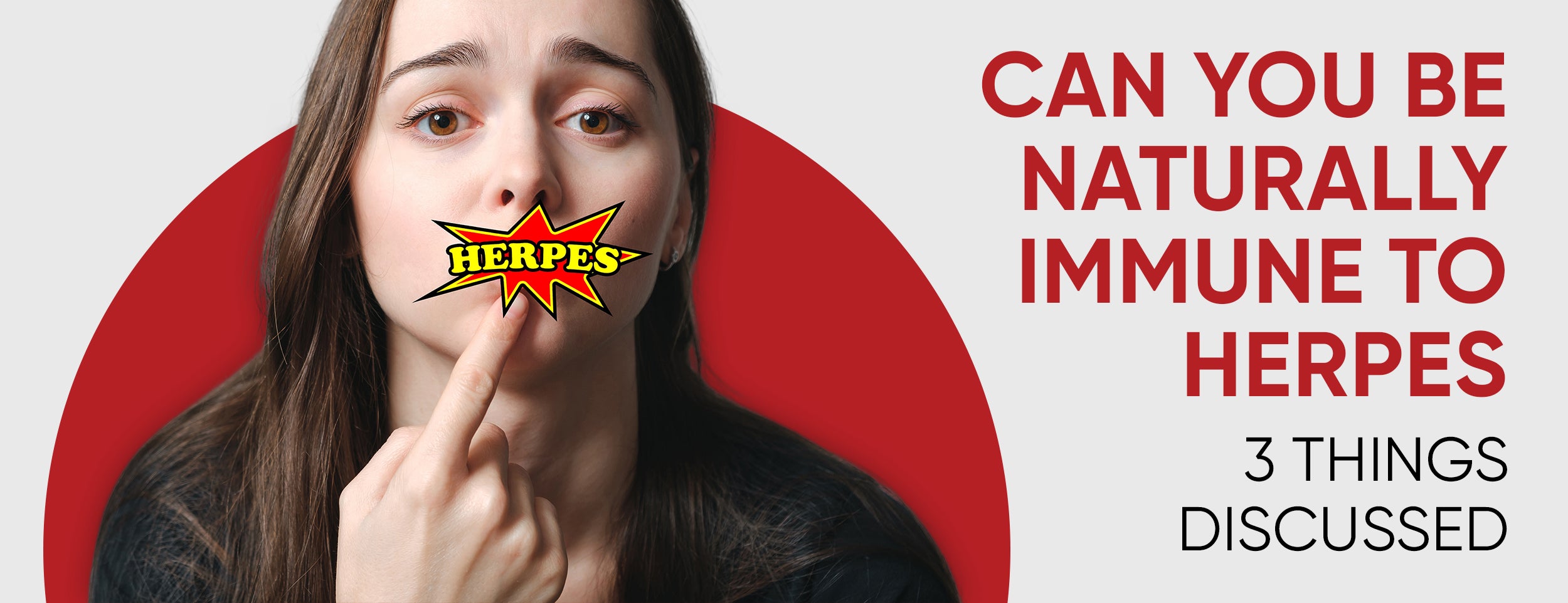The COVID-19 pandemic has emerged as a global health crisis, impacting millions of individuals worldwide. As the virus continues to evolve and unveil new variants, the topic of natural immunity and COVID-19 vaccines has become a subject of ongoing discussion and debate regarding their role in preventing infection and severe illness.
Both natural immunity and vaccines play pivotal roles in our battle against COVID-19. While natural immunity may provide a certain level of protection, vaccination is crucial to ensure a robust and dependable defense against the virus.
This blog post will discuss the pros and cons of COVID-19 vaccines and natural immunity. We'll also examine their effectiveness against the Omicron variant recently surfacing in several countries. Plus, we'll explore health organization's recommendations for natural immunity and vaccination to prioritize public health.
Natural Immunity vs. Vaccine Covid: An Overview

Natural immunity is the protection developed after being infected with a virus or bacteria. It can prevent reinfection or reduce illness severity upon exposure to the same or similar pathogen.
COVID-19 vaccines stimulate the immune system to produce antibodies and fight the virus. They aim to prevent infection, severe illness, and death. Different types include mRNA, viral vector, and protein-based vaccines, activating varied immune responses.
Natural Immunity: Benefits and Limitations
Natural immunity offers broad protection against different strains of the same or similar viruses. It involves antibodies, T cells, and B cells that recognize infected cells, eliminate them, or produce more antibodies as needed.
Additionally, natural immunity reduces viral load and transmission, lowering the risk of spreading the virus to others. It may not last long enough or effectively prevent reinfection or severe illness. Factors like infection type, severity, age, health status, and the virus's genetic diversity affect its duration and effectiveness.
Moreover, natural immunity may not protect against new variants with significant mutations or structural changes. Hence, individuals with natural immunity remain susceptible to infection or severe illness from immune-evading variants.

Natural Immunity Strength and Duration
The strength and duration of natural immunity can vary between individuals and viruses. Generally, natural immunity tends to be more robust and long-lasting for viruses that undergo minimal changes over time, like measles or chickenpox. In contrast, viruses that mutate frequently, such as influenza or coronaviruses, may have less enduring natural immunity.
Regarding COVID-19, studies have revealed that most individuals who have recovered from an infection develop detectable levels of antibodies and other immune cells that can persist for several months or even longer. The levels of these immune components may decrease over time or differ based on the severity of the infection.
Several factors can influence the duration and strength of natural immunity to COVID-19, including:
- The type and viral load of the infecting virus.
- The age and overall health of the individual.
- The presence of underlying medical conditions or the use of immunosuppressive treatments.
- Exposure to other coronaviruses or similar pathogens.
- Genetic variations among individuals.
Potential Variants and Natural Immunity
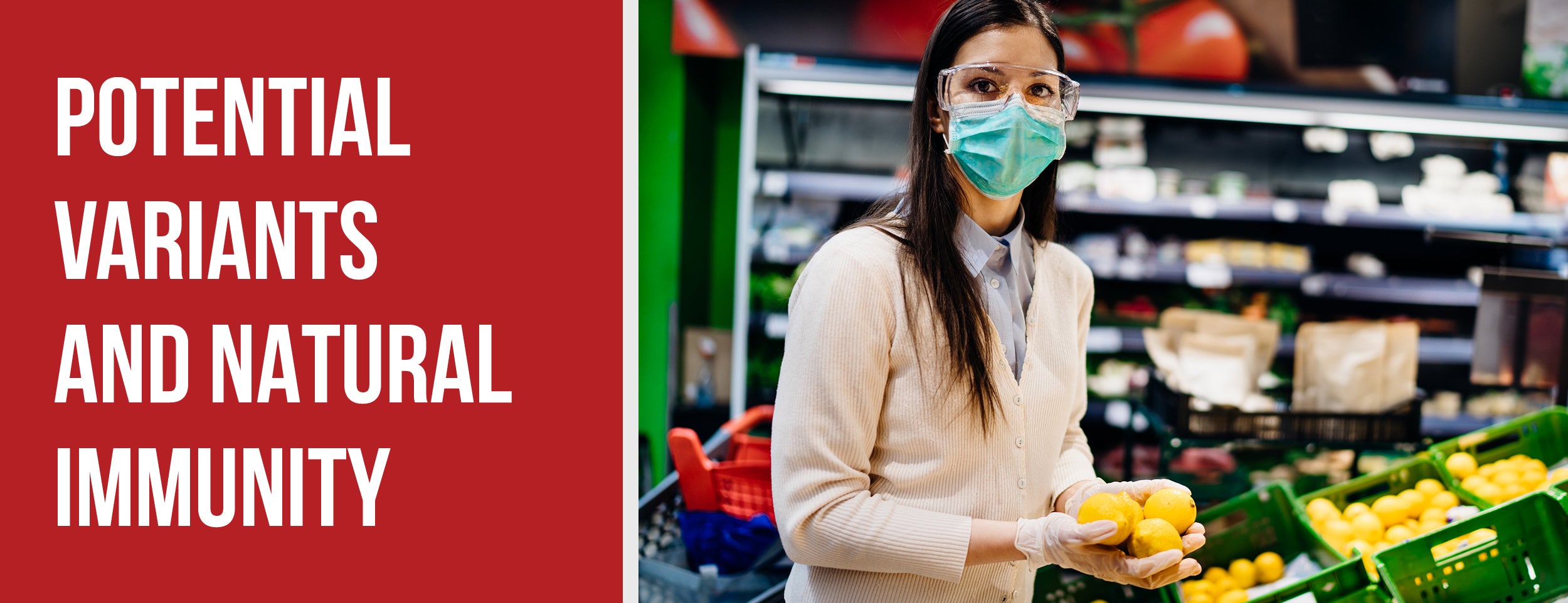
Since the emergence of COVID-19, multiple variants have surfaced worldwide. The World Health Organization (WHO) has classified certain variants as variants of concern (VOCs) due to their increased transmissibility, virulence, or resistance to existing treatments or vaccines.
Here are a few examples of VOCs:
- Alpha (B.1.1.7) was first detected in the United Kingdom in September 2020.
- Beta (B.1.351) was first detected in South Africa in May 2020.
- Gamma (P.1) was first detected in Brazil in November 2020.
- Delta (B.1.617.2) was first detected in India in October 2020.
- Omicron (B.1.1.529), detected for the first time in November 2021.
The connection between natural immunity and emerging COVID-19 variants is intricate and evolving. Some studies suggest that natural immunity offers certain protection against variants like Alpha, Beta, and Gamma.
Other studies indicate that natural immunity may be less effective or potentially increase the risk of reinfection with other variants like Delta and Omicron.
The effectiveness of natural immunity against variants depends on several factors, such as:
- The degree of similarity or dissimilarity between the original and variant virus.
- The type and quality of immune response triggered by the initial infection.
- The time interval between the original infection and exposure to the variant.
- The presence of other immune factors, including cross-reactive antibodies or T cells.

Risks and Complications of Contracting COVID-19
While natural immunity may offer certain benefits, it is accompanied by potential risks and complications associated with contracting COVID-19. These risks encompass:
- The potential for developing severe illness or even death from COVID-19, particularly in older individuals or with underlying medical conditions.
- The likelihood of experiencing long-term or chronic symptoms following recovery from COVID-19, such as fatigue, shortness of breath, chest pain, cognitive impairment, or mental health issues. This condition is commonly referred to as long COVID or post-COVID syndrome.
- The possibility of transmitting the virus to others, particularly those more vulnerable or unvaccinated.
- The potential for contributing to the emergence or spread of new variants by serving as a host for the virus to replicate and mutate.
As a result, contracting COVID-19 should not be regarded as a safe or reliable means of acquiring natural immunity. It is significantly safer and more effective to receive vaccination against COVID-19.
Benefits and Limitations of COVID-19 Vaccines

COVID-19 vaccines can prevent infection, reduce severe illness, and save lives. Studies confirm their efficacy in preventing symptomatic and asymptomatic infection, hospitalization, and mortality.
COVID-19 vaccines offer an additional advantage by reducing viral load and transmission. This indicates that vaccinated individuals may have smaller quantities of the virus in their system, lowering the likelihood of spreading it to others.
COVID-19 vaccines do have certain limitations as well. One limitation is that they might not offer absolute protection against infection or severe illness caused by specific variants. Various factors, including the type and dosage of the vaccine, the interval between doses, the duration of immunity, and the genetic diversity of the virus, influence this.
COVID-19 vaccines may cause side effects in some people, such as pain, redness, swelling at the injection site, fever, headache, fatigue, muscle pain, or nausea. These reactions are usually short-lived and indicate a response from the immune system.
Rarely, severe adverse events may occur following COVID-19 vaccination. These include allergic reactions (anaphylaxis), blood clots (thrombosis), and inflammation of the heart muscle or lining (myocarditis or pericarditis). These events are rare and treatable, with benefits outweighing the risks.
Efficacy and Effectiveness of Vaccines
Vaccine efficacy and effectiveness are often used interchangeably but carry distinct meanings. Vaccine efficacy denotes the performance of a vaccine under controlled or ideal circumstances, such as during clinical trials. Conversely, vaccine effectiveness gauges its real-world impact in practical conditions, like within a population.
The COVID-19 vaccine efficacy rates vary based on factors like vaccine type, dosage, measured outcome (e.g., infection, symptomatic disease, hospitalization, death), and the specific population under study (e.g., age group, health status). Consider the following clinical trial data:
- Pfizer-BioNTech mRNA vaccine: Demonstrated a 95% effectiveness rate.
- Moderna mRNA vaccine: Showed 94% protection against COVID-19 symptoms.
- Oxford-AstraZeneca viral vector vaccine: Exhibited 70% protection against COVID-19 symptoms.
- Johnson & Johnson viral vector vaccine: Displayed a 66% efficacy rate.
- Sinopharm inactivated vaccine: Presented a 79% success rate.
- Sinovac inactivated vaccine: Reported a 51% effectiveness rate.

The effectiveness of COVID-19 vaccines may not accurately reflect their true real-world impact due to various influencing factors. These factors include:
- The prevalence and circulation of the virus and its variants within the community.
- The adherence and coverage of vaccination programs and policies.
- The availability and accessibility of vaccines and healthcare services.
- The compliance and behavior of individuals and populations.
It is crucial to analyze effectiveness data from studies and research to evaluate the real-world impact of COVID-19 vaccines on infection, disease, hospitalization, death, and transmission. Different settings and populations offer valuable insights. Here's a snapshot of the findings from observational studies:
- The Pfizer-BioNTech mRNA vaccine demonstrates an 88% effectiveness rate against symptomatic Delta variant cases.
- The Moderna mRNA vaccine shows an 87% protection against Delta variants.
- The Oxford-AstraZeneca viral vector vaccine displays a 67% efficacy against symptoms of the Delta variant.
- The Johnson & Johnson viral vector vaccine exhibits 68% protection from symptomatic Delta variants.
- The Sinopharm inactivated vaccine showcases a 78% success rate against symptomatic Delta variants.
- The Sinovac inactivated vaccine presents a 51% effective rate against Delta variants.
These data substantiate the overall effectiveness of COVID-19 vaccines in preventing infection and disease, particularly in mitigating severe outcomes. It is important to consider variables such as vaccine type, dosage, interval between doses, immunity duration, and virus genetic diversity, which can influence their efficacy.
Variants and Vaccine Protection
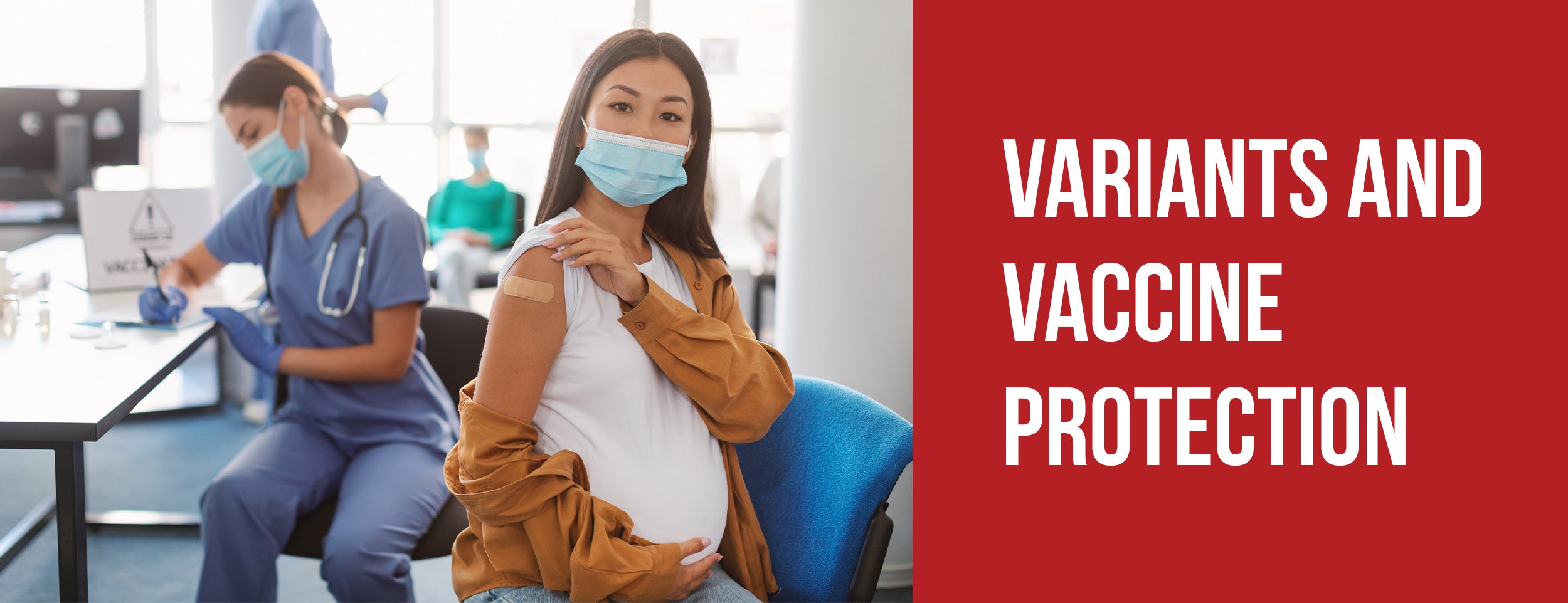
Developing and deploying COVID-19 vaccines face challenges due to the emergence and spread of new virus variants. Variants are versions that have undergone genetic mutations. Some mutations may impact the structure or function of the spike protein, which is responsible for attaching to human cells for entry.
Certain variants may possess advantages in transmissibility, virulence, or resistance to treatments or vaccines. This allows for higher infection rates, more severe illness, or avoidance of immune response from natural infection or vaccination.
The influence of COVID-19 variants on vaccine effectiveness relies on various factors, including:
- The degree to which the original virus and its variant are alike or dissimilar.
- The type and effectiveness of the immune response triggered by vaccination.
- The time gap between vaccination and exposure to the variant.
- The presence of other immune elements, such as antibodies or T cells that cross-react.
Some studies suggest COVID-19 vaccines protect against certain virus subtypes, including Alpha, Beta, and Gamma. Other studies indicate vaccines may have reduced effectiveness or increased breakthrough infection risk from variants like Delta and Omicron.
Breakthrough infection occurs when a fully vaccinated person gets COVID-19. Although no vaccine is 100% effective, most cases are mild or asymptomatic, rarely leading to severe illness or death.
Some studies have looked at how vaccines work against different variants. Here are a few examples:
- A study in Qatar found that two doses of the Pfizer-BioNTech mRNA vaccine were 89.5% effective against the Alpha variant, 75% effective against the Beta variant, and 100% effective against severe illness or death from either variant.
- In Canada, a study showed mRNA vaccines were 87% effective against the Alpha variant, 72% against the Beta variant, and 87% prevented hospitalization.
- In Israel, a study showed mRNA vaccines made by Pfizer and BioNTech were 93% effective against the Alpha variant, 64% effective against the Delta variant, and 88% effective against severe illness from either variant.
- The United Kingdom conducted a study that found mRNA vaccines from Pfizer and BioNTech were 88% effective against symptomatic disease from the Alpha variant, 79% effective against symptoms from the Delta variant, and 96% preventing hospitalization with either variant.
- Research in South Africa revealed that two doses of Oxford-AstraZeneca viral vector vaccines were 22% effective against the Beta variant, 60% beneficial against the Delta variant, and 71% effective against hospitalizations.
- In Brazil, researchers found two doses of Sinovac inactivated vaccine were 50.4% curative against symptomatic diseases from the Gamma variant, 51.5% of the Delta variant is effective against symptomatic diseases, and 83.7% preventing hospitalization.
These studies suggest that COVID-19 vaccines can provide some protection against variants, but how well they work can vary depending on factors like the type and dose of vaccine, the time between doses, the length of immunity, and virus genetic diversity.

Potential Side Effects and Risks of Vaccines
One misconception about COVID-19 vaccines is that they may cause long-term or serious side effects. This is not true. The vaccines are safe, rigorously tested, and approved by regulatory authorities before use.
Common side effects of COVID-19 vaccines include mild to moderate reactions within a few days after vaccination. These may include inflammation, pain, redness, fever, headaches, fatigue, or nausea at the injection site. These side effects are temporary and indicate an immune response.
Rare, severe adverse events may occur after a COVID-19 vaccine, such as anaphylaxis (allergic reaction), blood clots (thrombosis), myocarditis (inflamed heart muscle), or pericarditis (inflamed heart lining). Although uncommon, these events are treatable, and the benefits outweigh the risks.
Facts about rare adverse events with COVID-19 vaccines:
- Anaphylaxis is a severe allergic reaction that can occur shortly after vaccination. Symptoms include difficulty breathing, low blood pressure, or loss of consciousness. It can be treated with epinephrine and antihistamines. Estimated risk, 2-11 cases per million doses.
- Thrombosis is when blood clots form in blood vessels, blocking blood flow. Symptoms include pain, swelling, or discoloration. It can be treated with blood thinners or surgery. Estimated risk: 1-10 cases per million doses.
- Myocarditis and pericarditis are inflammations of the heart muscle and lining. Symptoms include chest pain, shortness of breath, or irregular heartbeat. Treatment includes anti-inflammatory drugs or steroids. Estimated risk: 12-56 cases per million doses.
COVID-19 vaccines are safe with minimal risk of serious or long-term side effects. The benefits of preventing infection and severe illness outweigh the potential harms.
Natural Immunity and Vaccines in Combating Omicron
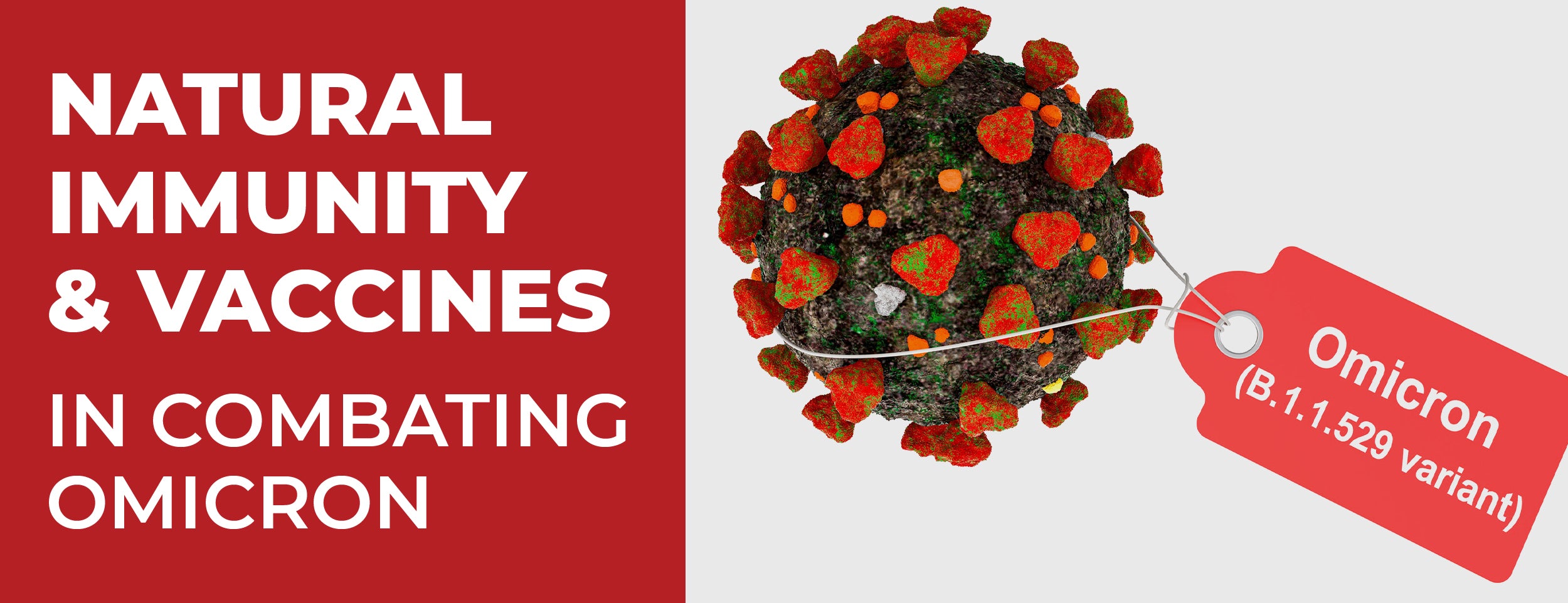
The fight against COVID-19 faces a new challenge: the Omicron variant. In November 2021, it was first found in South Africa. It has since spread to other countries. The WHO designates it as a variant of concern due to its numerous mutations that may affect its transmission, virulence, and resistance to treatments and vaccines.
The effectiveness of natural immunity and vaccines against Omicron is still under investigation. Preliminary data suggests reduced protection compared to other variants.
Some on natural immunity and vaccines combating Omicron include:
- A South African study found prior COVID-19 infection was associated with lower Omicron reinfection risk than Delta. Prior infection didn't fully prevent Omicron reinfections, which carried a higher risk than other variants.
- A UK study showed two doses of Pfizer-BioNTech vaccine were 70% effective against symptomatic Omicron disease but 93% effective against Delta. Boosters increased Omicron's effectiveness to 75%, compared to Delta's 95% effectiveness.
- An Israeli study revealed the Pfizer-BioNTech vaccine was 33% effective against Omicron infection but 79% effective against Delta. Boosters increased Omicron effectiveness to 70% and Delta effectiveness to 93%.
These findings suggest that natural immunity and vaccines can offer some Omicron protection, albeit lower than other variants. Boosters may enhance the defense against Omicron and other variants.

Understanding the Omicron Variant
The Omicron variant is a version of the SARS-CoV-2 virus with over 50 genetic mutations. Some of these mutations affect the spike protein that attaches to human cells. Key characteristics and implications of Omicron include:
- Omicron has more mutations than any other variant of concern, some similar to Alpha, Beta, Gamma, and Delta, while others are unique.
- Omicron may spread faster due to mutations in the spike protein that enhance its binding to human cells and immune evasion.
- Omicron may cause less severe illness or death as mutations in the spike protein impair its ability to enter cells and trigger inflammation.
- Omicron may have reduced susceptibility to existing treatments or vaccines due to spike protein mutations altering its shape and evading immune recognition.
The impact of Omicron is still uncertain and requires further research and data. Confirmation is needed regarding its transmissibility, virulence, and resistance.
Vaccine Effectiveness Against Omicron
Regarding the Omicron variant, a key question is how well COVID-19 vaccines protect against it. Early data suggests reduced vaccine effectiveness compared to other variants, but vaccines remain useful and effective against Omicron. Facts on vaccine effectiveness:
- Vaccines prevent infection, illness, and death from Omicron and other COVID-19 variants. While their effectiveness may be lower against Omicron, they still offer protection and reduce strain on healthcare systems.
- Vaccines reduce Omicron viral load & transmission. Studies show they lower virus levels & decrease the risk of spreading. Despite their lower effectiveness against Omicron, they help curb spread & prevent mutations.
- Vaccines generate a strong immune response against Omicron by stimulating T cells, antibodies, and B cells. While their effectiveness may be reduced, they produce a diverse and adaptable immune response to new challenges.
Therefore, COVID-19 vaccines remain valuable in fighting against Omicron and other variants. Effectiveness may vary based on vaccine type, dosing, dosage frequency, duration of immunity, and diversity of virus genes.
Impact of Prior Infection on Omicron

Regarding the Omicron variant, prior COVID-19 infection may affect the risk or severity of reinfection. Although preliminary data suggests reduced protection against Omicron compared to other variants, prior infection is not useless or harmful. Here are a few facts about prior infection and Omicron:
- Prior COVID-19 infection can still provide some protection against Omicron, reducing the severity of illness and preventing reinfection. Although their protection may be lower against Omicron than other variants (such as Alpha, Beta, and Gamma), it still helps alleviate the burden on health systems.
- Prior infection can lower Omicron's viral load and transmission, decreasing its chances of spreading and preventing further mutations.
- Prior infection stimulates a broad and robust immune response against Omicron, involving T cells, B cells, and antibodies. This diversity helps adapt to new challenges.
Therefore, prior COVID-19 infection is valuable and beneficial in combating Omicron and other variants, considering factors like infection type, severity, time interval, duration of immunity, and virus diversity.
Public Health Recommendations on Natural Immunity and Vaccines
Given the uncertainty and complexity surrounding natural immunity, vaccines, and Omicron, it's important to follow reputable health organizations like CDC and WHO guidelines. These guidelines are based on the latest evidence and are regularly updated. Some current guidelines include:
CDC Guidelines on Natural Immunity and Vaccination
The CDC recommends COVID-19 vaccination for everyone aged 5 and older, regardless of prior infection. Booster doses are advised 6 months after completing the Pfizer-BioNTech or Moderna series or 2 months after the Johnson & Johnson vaccine.
Vaccination protects more than natural immunity, especially against variants like Delta and Omicron. It reduces the risk of reinfection, severe illness, hospitalization, death, and transmission.
After COVID-19 recovery, wait at least 90 days before getting vaccinated. This is to avoid interference with the immune response. Monoclonal antibody or convalescent plasma recipients should wait 90 days after those treatments.
Importance of Vaccination for Individuals with Natural Immunity

Even if you've recovered from COVID-19 and have natural immunity, getting vaccinated is still a good idea. Vaccination can give you extra benefits, like:
- Boosting your defense against variants. Studies show that vaccinating can strengthen your immune response, boost antibody levels, and help fight off variants that might escape natural immunity.
- Extending your protection over time. Vaccination can help prolong your immunity, reducing the risk of reinfection or severe illness.
- Lowering the risk of complications. Studies indicate that vaccinating can reduce the chances of developing long-term COVID and post-COVID syndrome, impacting your quality of life.
- Protecting others. Vaccination can lower your viral load and decrease the risk of transmitting the virus to those who might be more vulnerable or unvaccinated.
Vaccination is a safe and effective way to enhance your natural immunity against COVID-19, particularly against variants like Omicron.

Continuing Research and Evolving Guidelines
The natural immunity, vaccines, and Omicron situation is still uncertain and complex. Ongoing research aims to understand Omicron's impact on transmissibility, virulence, and resistance and to develop vaccines and natural immunity to fight it.
New data and evidence can cause guidelines from organizations such as the CDC and the WHO to evolve. Stay updated with the latest information on natural immunity and vaccination recommendations.
You can consult reputable sources for the latest information, such as:
- CDC’s website for vaccinations and natural immunity in the United States.
- WHO’s website for vaccination and natural immunity worldwide.
- Your local health authority’s information on vaccinations and natural immunity for your region or country.
Conclusion
In summary, innate immunity and the COVID-19 vaccine are important for protecting against severe diseases from COVID-19, including variants like Omicron. They have limitations and challenges, such as reduced effectiveness against certain variants.
Following public health recommendations from established organizations like the CDC and WHO regarding natural immunity and vaccination is crucial. These recommendations are evidence-based and regularly updated.
A holistic approach to COVID-19 protection includes natural immunity and vaccination and measures like mask-wearing, social distancing, handwashing, avoiding crowds, and regular testing.
Ultimately, the decision to get vaccinated depends on your unique circumstances. This blog post aims to provide useful information and insights to help you make an informed decision based on facts and science.

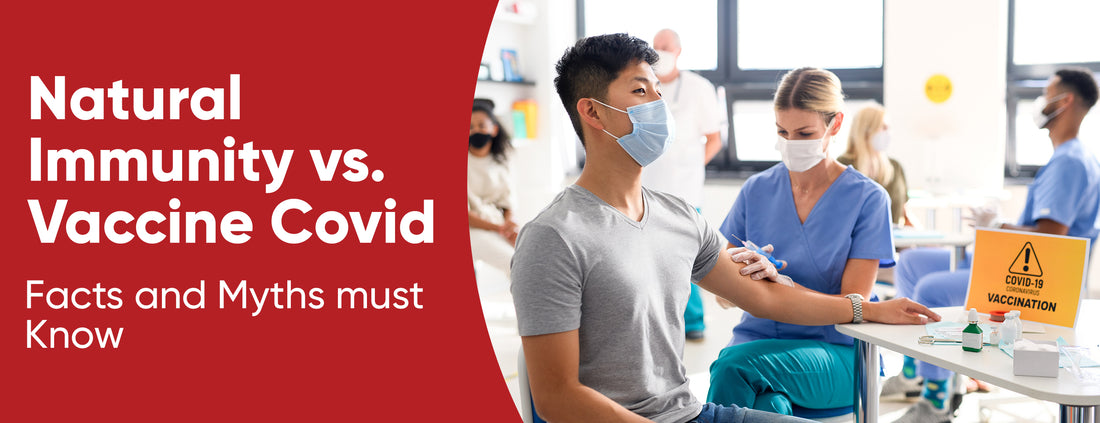












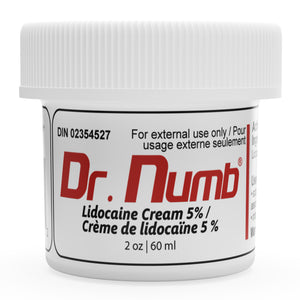
![Natural Ways to Boost Immunity [ Essential]](http://drnumb.ca/cdn/shop/articles/How_to_Naturally_Boost_Immune_System__8_Tips_Essential.jpg?v=1706068514)
